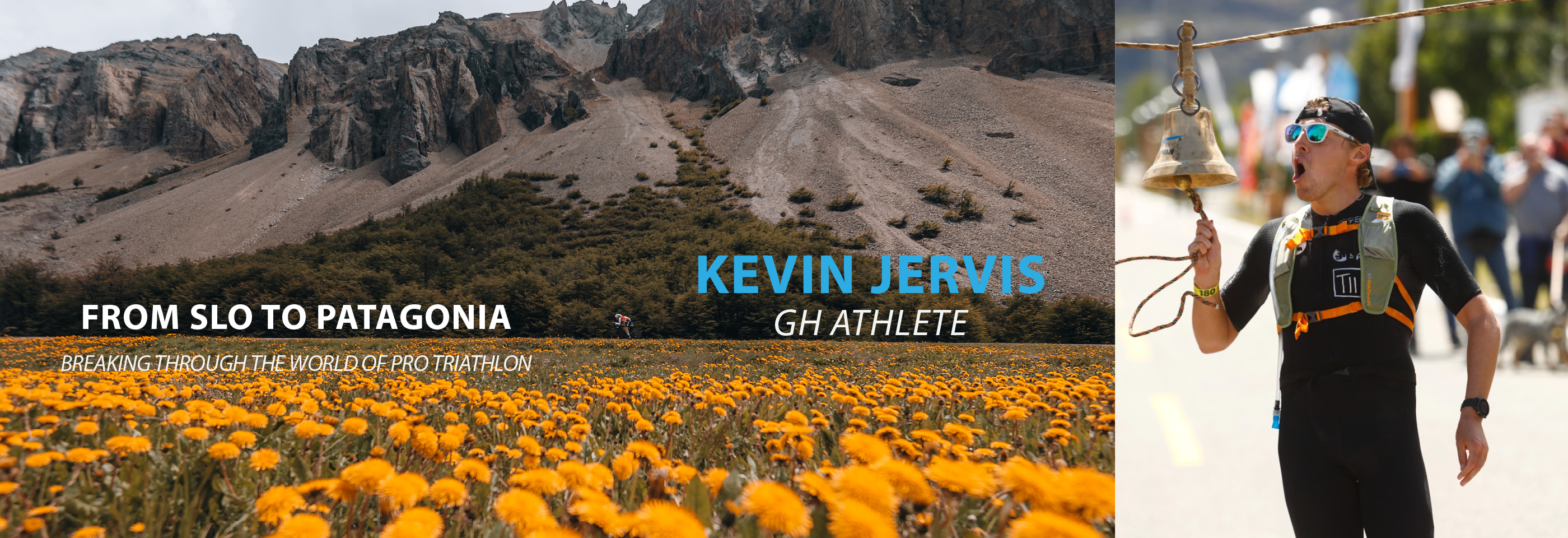
Interviewer: Were there any skills you learned during your time working at GH Sports that helped you better prepare for your triathlon races?
Kevin: Yeah, I would say that the Gait Analysis, like learning shoe fitting and the technology and design those major shoe companies put so much time, energy and money into developing. I think that kind of opened my mind (thinking) “okay you got your entry level equipment, you got your moderate equipment, and then if you really want to have things dialed (you can) spend money on quality rather than quantity. There are companies that have products that will help you and that will give you bang for that buck even if it’s a high upfront cost”.
Truthfully, I think this is probably my 7th or 8th year doing triathlon and I’ve only had one running injury and I think a lot of that comes down to being more mindful of the equipment that I use, especially shoes.
And that’s on the technical side, but in more of an interpersonal thing, there are so many athletic and outdoorsy people coming into sport and specifically triathlon at any different level. (I learned) how to connect with those people and kind of like “take what you want and leave the rest” sort of mindset I learned from that from just interacting with all the people coming through GH Sports.
I: What motivated you to become a triathlete?
K: So, I grew up swimming and running, and then I was mainly a soccer player. I went through high school (playing) mainly soccer, but when I got to Cal Poly, I knew I couldn’t play soccer at the level I was. The club soccer team is basically an NCAA team, and I wasn’t good enough to do that. So, I wanted to find people still active and doing fun things outdoors but without a single-minded focus on sport because I wanted to go to school for school. So, then I wanna say for like the first two years of Cal Poly I was casually on the team. I met a few people from my dorm that were really into triathlon, so they brought me out to a couple practices. I got to use the swimming pool which was probably my main driver (getting access to the swimming pool). And then I really didn’t start racing until probably the end of 2nd year starting my 3rd year.
I: That is still an early start into competing in tri without having been seeking it out intensely.
K: Yeah, I mean unfortunately with triathlon the barrier of entry is so high in terms of financial and stuff. Like you have to buy so much gear and a bike. It is crazy expensive and if you’re going to justify spending all that money you must put in a lot of hours actually training with it. Unless you’re going to go all in, it’s hard to have one foot in and one foot out.
I had one foot in one foot out at the beginning. I could see the potential of going all in, but I knew you would have to get over a little cliff to realize that. So, I put it off for a long time.
I: What pushed you to finally push through that threshold and commit to triathlon racing?
K: Honestly, I think I would’ve kept doing it no matter what just because I love swimming, running, biking, and exploring outdoors but honestly, I think just getting a taste of success was like “oooh okay let’s see what the next thing I could do”.
At first, it was catalyzed by success; that was what pushed it from recreation just having fun to “okay, let’s see what we can do here”.
Elaborating on the nature of triathlon competition:
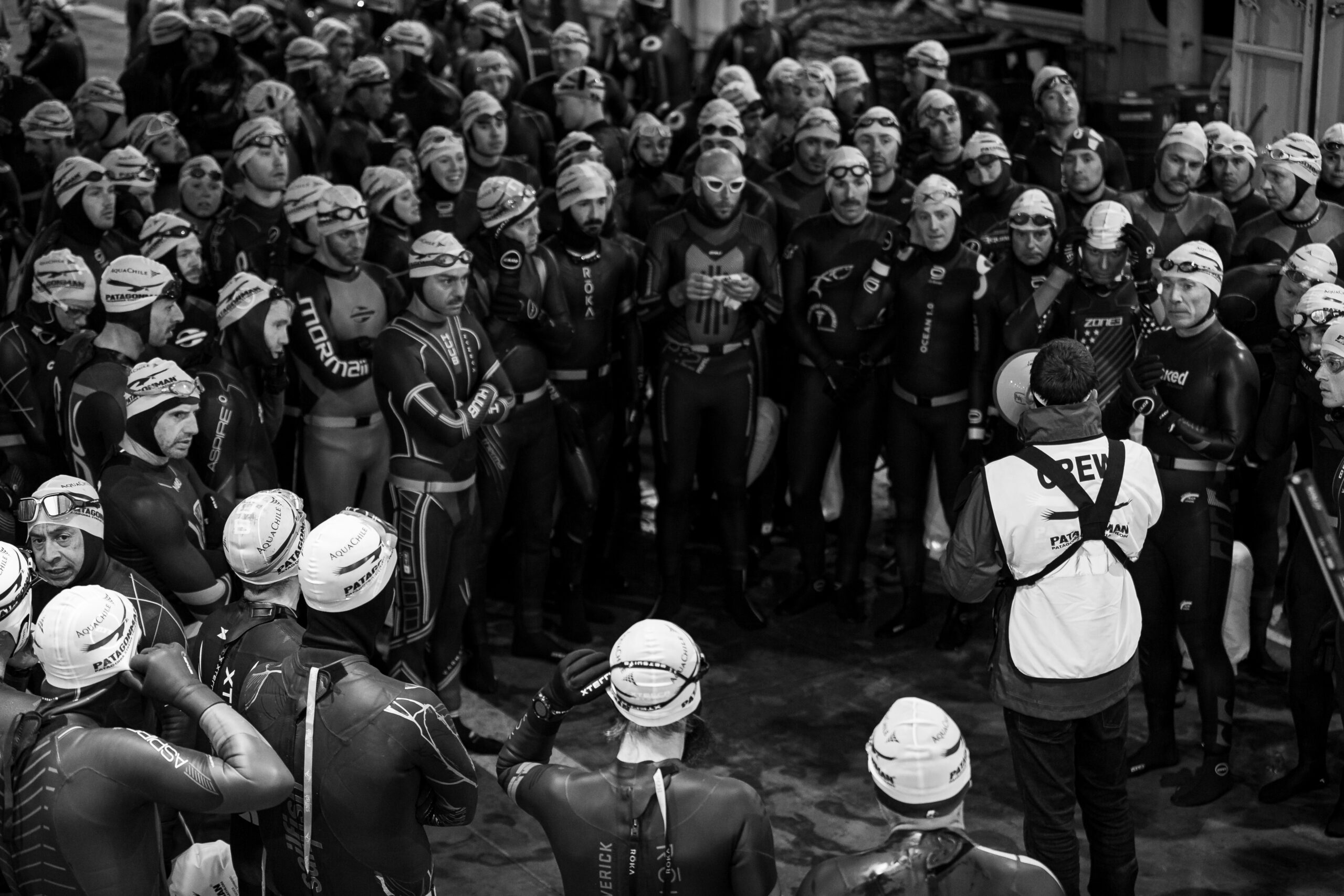
K: Competition is individual (in triathlons) but you’re representing a community. I would always say that I was part of a team and I continue saying that I am part of a team. Just because I don’t think you can truly do it by yourself and I don’t think any success or failure is purely laid on your shoulders. It’s a community that gets you there and it’s a community that pushes you forward and supports you. I think Cal Poly (at the time it was the biggest club team in the US) I think it still is, I’m not entirely sure. Just the amount of passion and enthusiasm in getting to learn from people who would have been doing it for a while, that was all invaluable, definitely a team mindset.
I: According to you, what is the toughest aspect of being a triathlete?
K: Umm that’s a good question. I would say it depends on the level you’re at. I would say personally you put in a lot of work and a lot of the time you don’t see the results for a long time. So just like with anything you don’t want to be driven by the dopamine hits for doing good and seeing the results. But if you are working hard, psychologically you need to sometimes see the progression so that you can keep your passion and discipline, so you don’t just feel like your wheels are turning. There are extended periods of time, at least for me, where you’re putting in the work, putting in the work and you don’t see anything. You’re wondering, “did you flatline? Am I going backwards? Is this really what I’m supposed to be doing? Do I even like this?”
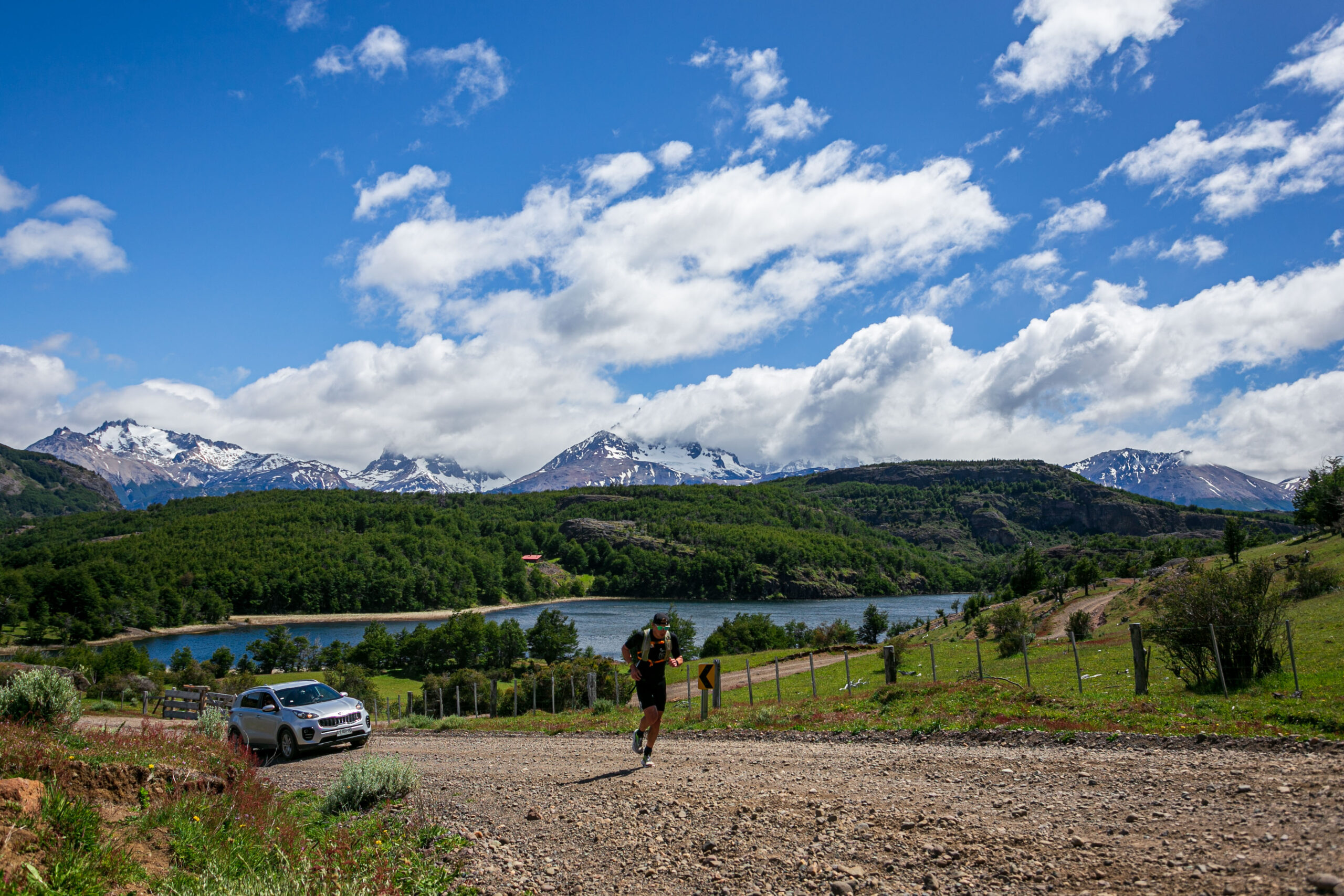
You can’t base what you do on inspiration, you have moments of inspiration but what really gets you there is discipline. Doing it when you don’t want to. For me it is a struggle to know that even if you’re not seeing results, you know personally, you’re doing the right things and you’re putting in the right work and sometimes down the line you just have to be patient and you’ll see it.
I: What is your favorite food to eat the night before a big run?
K: I found that especially going towards longer distances (half Ironmans and Ironmans) I like to have my big meal at lunch or early afternoon the day before and then have a lighter dinner usually just carbs and a little bit of protein. Normally it’s something like chicken and rice to chicken and pasta, or a meaty sandwich. But honestly when I got to Chile, I ended up arriving at 6-7pm on the night of the race. Check-in was already closed, everything was frantic. I had to build my bike and I had to get my race bib. So, I got there, and I was starving so I just ate like 10 empanadas, and I felt great the entire next day. So maybe my new thing is just eating some empanadas.
I: How was it traveling to Chile for the big race?
K: It was stressful for the first day because I ended up being delayed in LA for 2 ½ days. So, when I was sitting in LA that first day, I realized I wasn’t going to be getting there on time. I wasn’t going to be able to get into my normal pre-race routine where I get to relax, get my bearings, talk to some of the other people, I might not even make it to this race. So that first day was kind of stressful because I was losing that ideal but then by the 2nd day I was like “okay everything is gone out the window, I just want to be able to get there and race”. At that point I wasn’t as stressed. I was just doing what I could, saying “I’ll take what it gives me and hopefully I can just get there and experience it”.
I: So, you had to adapt quick, how do you cope with mental pressure during a race especially after your stressful travels?
K: In a way, it helped. A lot of times, especially when you have a very tailored approach to the race, you have your taper dialed and you’re just waiting for the race to start, you’ve got everything lined up. You start over analyzing and thinking about things too much.
And then for this race, when I was out in Patagonia, I knew that all of that was out of the window. So (I decided I was) going to constantly be paying attention to how I’m feeling and always be in tune with exactly how I’m feeling. I’m not going to wear a watch; I’m not going to look at any data or any metrics. I’m going to start racing, see how I feel, push myself and listen to myself. And so, I think that is what a lot of the top guys are able to do and then they add in the data to help them, but I think it was an eye-opening experience for me to know “okay you don’t want to be driven by all the data” even though all the data has molded your training and gotten you to this point. On race day just let it go, just be in tune with your body. It’s that mental and physical balance where you’re trying to push past barriers that your mind puts up and your body puts up.
I: What emotions do you feel after you finish a race?
K: I think it ended up being just over 8 hours, so throughout those 8 hours there were insane highs and insane lows. And the race started out pretty terribly for me. During the swim portion I was completely out of it, my body was trying to wrap its head around what we were doing now because we were just sitting in airports, eating airport food, scrunched on planes, and cars, and trains and stuff. And so then after a 5-hour night’s sleep you throw it into a cold black lake and tell it to sprint. It just took a little while for the wheels to get going. Throughout the day, I was fighting some cramps, affected by the travel even with good nutrition. There were some points when I had to back off just in order to know I was going to finish and not get stranded in the middle of Patagonia trying to limp home. For the most part (by the end) I felt strong and in control.
I: After such a tremendous race, did you do anything to celebrate? What was it like celebrating in Chile?
K: (During the Patagonman Xtri in Chile) The whole town comes together the next day. It’s a point-to-point race, which is part of the reason you need a support crew. They take all your stuff from the starting town and bring it to the ending town. And then that night people went out for drinks and had a big party in the city. The next day everybody was just hanging out because you’re out in the middle of nowhere. You’re not going to show up on race day and leave the same night, people are there as a community and they’re spending a couple of days together. So, it was fun to be out in a cool space that everybody was unfamiliar with and excited about. And then have just done something relatively crazy and out of the ordinary and then just get to eat, drink and talk in this foreign town that was so welcoming.
So, it wasn’t necessarily a big celebration, but it was cool that the race extended into the next day where you also got to debrief and hang out with everybody else.
And the race director, the race organizers are just a group of 5-6 people that are passionate and they are from Chile. They were super excited that everybody came out to their race and had a good time. So, like getting to hang out with both the people that organized the race, did the race, and the community surrounding the race it was just an all-inclusive type of deal.
I: Do you have any advice for people who want to start running marathons or triathlons?
K: Yeah absolutely. I would say the biggest thing is focusing on the process and being happy with whatever journey you start out on. If you set a goal and you are goal-driven, that can definitely be helpful. But if that’s the main factor then you’re going to miss all the fun stuff; all the personal development that leads you to that goal. Once you hit that goal, if that has been your only focus, you achieve it and for a second you get to enjoy it and then it’s gone. So, if you’re able to focus on the journey and realize that this is going to be a lot of hard work, there’s going to be sets backs, achievement, pain, suffering, and joy, and…fully embrace that then you can get a lot more out of it, and you honestly get a lot more success out of that.
I: In this recent race you had in Patagonia, your brothers accompanied you through your travels and were even your supporters throughout the race. What did that mean to you?
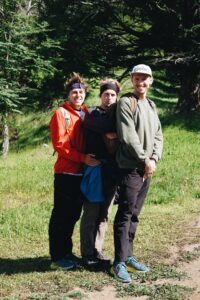
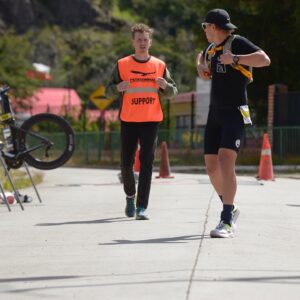
K: I have two younger brothers and the plan was always for the middle brother to be there as my support crew since they require you to bring a support crew. Then over thanksgiving me and my two brothers were together, and we had been trying to convince my youngest brother to come with us for months. He was like “no no, I don’t really like to travel” …” I’m starting a new job” and we had so much fun together over thanksgiving that three days before we left for Patagonia, he bought a ticket to come with us and just left everything for three weeks. It was awesome.
I: Aw that was so spontaneous, those tend to be the best trips!
K: And he’s like the least spontaneous guy I know so it meant a lot to me. It was special; my brothers and I are close. We end up going on a lot of trips and spending a lot of time together. But normally in races you got the athlete and the spectators. It was very special to do this race as a team. I couldn’t have done it without them. So, it was really a team effort, and basically all three of us did the race, so it was really cool to be able to share the experience of me actually racing with them.
I: And what role does your family play in your success?
K: I would say I got a lot of my work ethic from my mom. She was an athlete growing up but stopped in high school I wanna say. She was a solid Track and Cross-Country runner. …my family, especially my grandpa, brothers and my mom, were all out at as many races as they could possibly go out to. They’ve been on the journey as long as I have. It’s been cool to start the race with them cheering and end the race like at a taqueria just eating burritos afterwards.
I: Finally, a little GH Sports insider, what are some of your favorite shoes to train in right now? And what is your go to race shoe currently?
K: My training shoes have been the Hoka Cliftons for a long time. Those have kept me injury free, I like the way they feel. I think I have been wearing them for six years now, and there was only one model that gave me trouble, and then I talked with Garrett about it too when I was ordering the new ones. And he was like “yes everybody is saying the same thing”. I have some Hoka Speedgoats that I will do trail running in. Most of my training shoes are Hoka
And then I tried out a couple of race shoes, right now I am racing in the Brooks Hyperion….and I really like this Brooks pair, so I think I will stick with it for the time being.
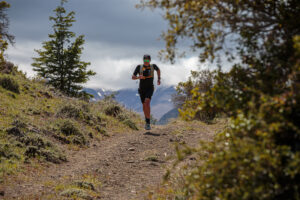
Thank you to Kevin for this wonderful interview and giving us a little more insight into his triathlon journey and travels as he breaks through the world of pro triathlon racing. Kevin plans to return to Patagonia to compete in the Patagonman Xtri once again in the fall and due to his success last year in Patagonia, was able to qualify for the Xtri World Championships in Norway this coming August. We wish our amazing GH Athlete the best of luck as he rests and prepares for the races to come.
Interview by: Kimberly Arechiga
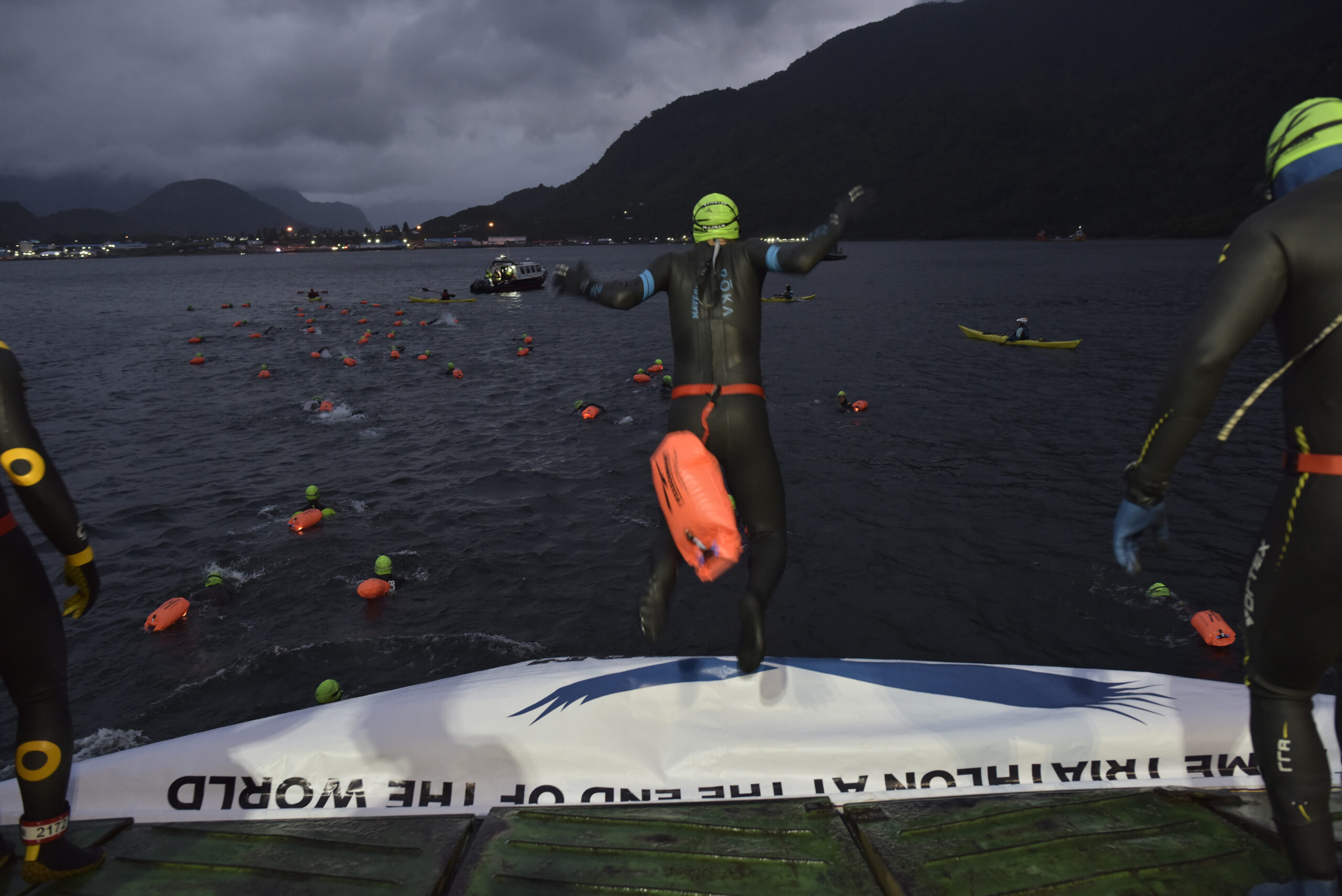
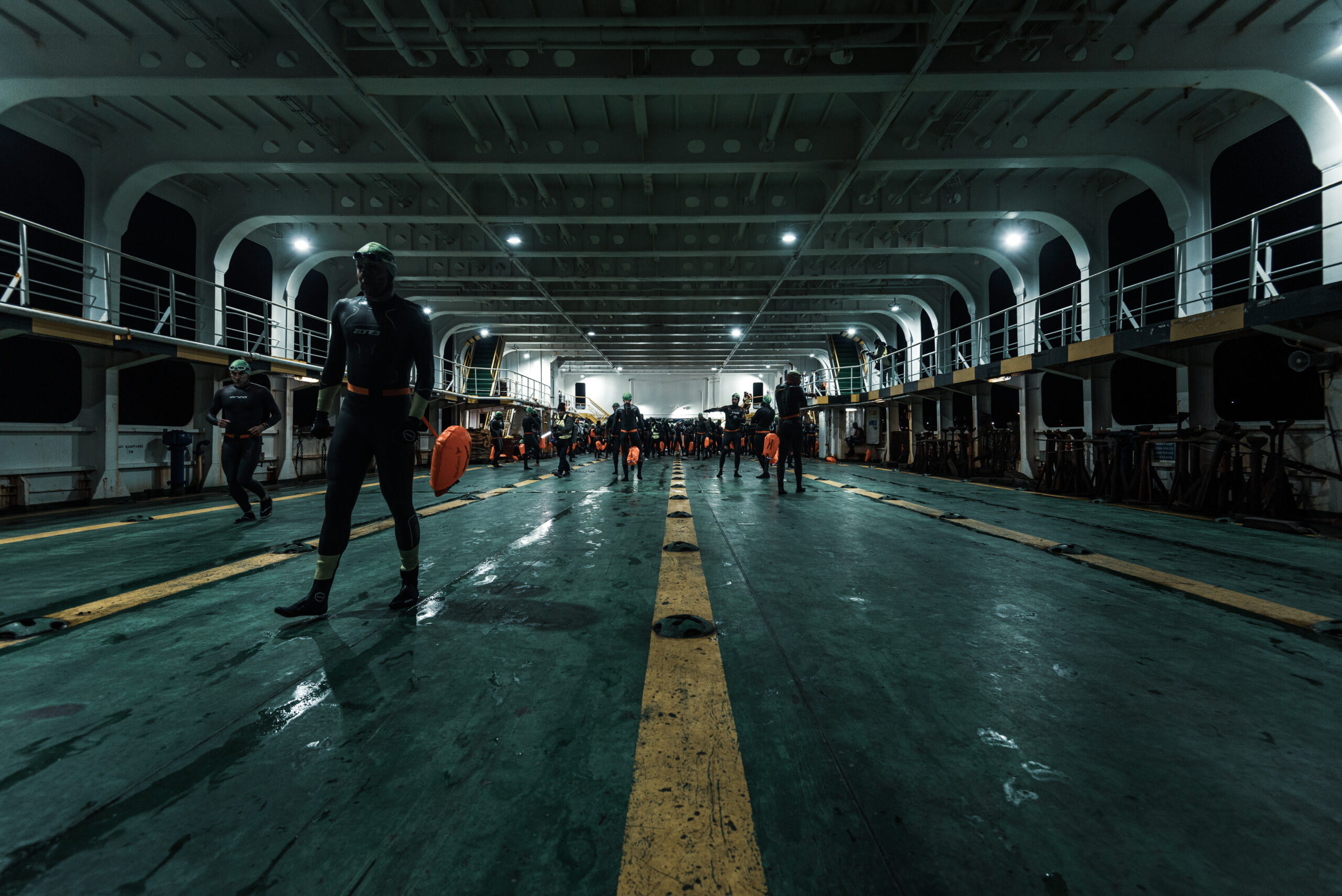
Leave a Reply